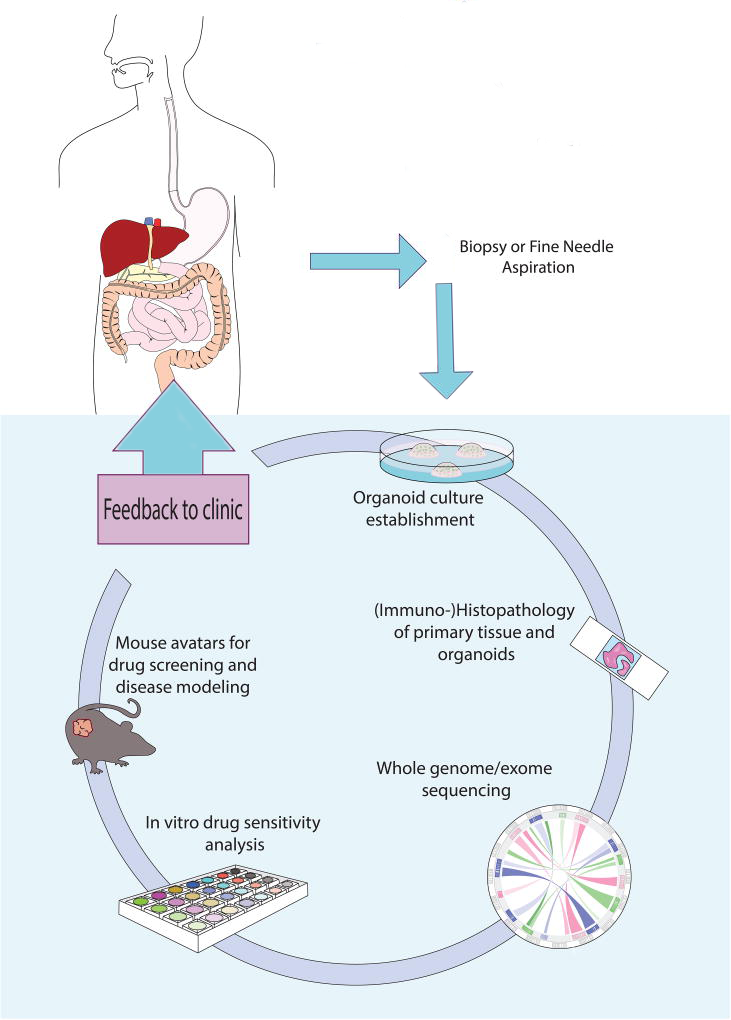Personalized medicine is a method of disease prevention and treatment, which takes into account the variations in environment, lifestyle, and genes in individuals. Indeed, patient-tailored mutation detection assays have been used to identify specific cancer subtypes to guide the use of targeted therapies. However, the large number of molecular and epigenetic alterations characteristic of many cancers and our incomplete understanding of the relationship between genotype and phenotype suggest that complementary strategies for personalized medicine are needed, in addition to the genomic approach.
Recent advances in cell culture technology, especially in the development of organoid have made preclinical modeling of individualized patient tumors a viable strategy for personalized medicine. Using cells derived from biopsies, surgical resections, and autopsy tissues as their starting cultures, OrganoLab has been developing organoids as next-generation cancer models.
 Figure 1. Schema of organoid-based personalized therapy.
Figure 1. Schema of organoid-based personalized therapy.
There are several advantages to the use of organoids as the tool for molecular characterization in precision medicine. First, compared to traditional molecular research, such as sequencing and other "omics" methods, organoid-based methods may be superior to relying on direct studies on patient tumor specimens. This is probably due to the low cancer cellularity exhibited by primary tumor specimens. Second, when most of the tissue is composed of stromal cells, it may be difficult to detect changes in the RNA and DNA profiles of cancer cells in surgical resection material. Finally, organoid models are stable over many passages, can be cryopreserved and are portable across different laboratory settings. This makes collaboration between different institutions and even across continents feasible, and opens up access to analysis in other laboratories. Moreover, by establishing biobanks, organoid cultures could be made available for other research groups, for future research or for validation of research results.
OrganoLab's organoid approach provides researchers with a "living" biobank of tissue for discovering and validating new drugs and targets, as well as modeling resistance to therapy. If you have any questions or specific requires, please feel free to contact us.
Online Inquiry
